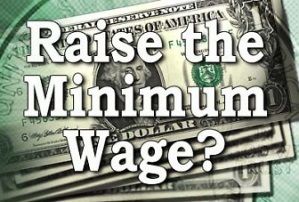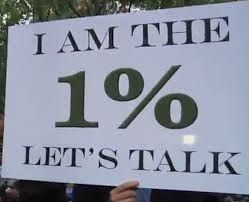Need to create middle-class CA jobs matters more than minimum wage
by Chris Reed | March 26, 2014 6:15 am
 Economic conservatives seem wary over the attempts by Democrats at just about every level of government to focus on the minimum wage. But should they be? It provides an easy way to broaden the debate from how the poor are faring to how those in the middle class are doing. In California, it provides a way to point out that the state status quo — dominated by hard-left lawmakers, swaggering unions, rapacious trial lawyers and Gaia-worshiping greens — is a failed one when it comes to job creation.
Economic conservatives seem wary over the attempts by Democrats at just about every level of government to focus on the minimum wage. But should they be? It provides an easy way to broaden the debate from how the poor are faring to how those in the middle class are doing. In California, it provides a way to point out that the state status quo — dominated by hard-left lawmakers, swaggering unions, rapacious trial lawyers and Gaia-worshiping greens — is a failed one when it comes to job creation.
I wrote about this angle in the U-T San Diego today[1]:
“University of California-Irvine economist David Neumark’s review of 100-plus major academic studies — which did not include studies from ideologically aligned think tanks — concluded that 85 percent of the analyses “find a negative employment effect on low-skilled workers.” Automation is likely to worsen this effect; Google “Europe” and “Corner Café” and you’ll see a Starbucks initiative that inevitably will be copied and yield mass displacement of U.S. fast-food workers.
“But even if minimum-wage hikes don’t kill jobs, the idea that this policy is a promising solution to income inequality makes little sense. In the big picture, what we need are many more people with in-demand job skills that lead to middle-income careers. And what we badly need from our elected leaders is an acknowledgment that California’s approach isn’t working in creating these job skills.
“Income inequality isn’t just growing in the U.S. It’s growing in all advanced nations as technological advances wipe out middle-class jobs by the millions. It’s growing everywhere as the job marketplace increasingly values — and strongly rewards — a narrower range of skills than it did previously.
“The best way to minimize the disruption this inexorable change creates is by maximizing the number of people with job skills not diminished by ‘creative destruction.’ For starters, we need a focus on computer science and technological expertise in middle school and high school — not curriculums based on the educational values of the 1950s. We also need to make it much easier for displaced workers of any age to go back to the classroom to get practical job training.
“Pursuing this ambitious agenda would be far more daunting than raising the minimum wage. But it has promise to significantly reduce income inequality — not nibble at the margins.”
Does left want to create middle-class jobs? Or play populist games?
 As the success of the “war on women” rhetoric in getting young women to the polls in 2012 suggests, both parties are likely to be in permanent 24-7-365 campaign mode on a national level from here on out. That doesn’t bode well for substantive debate.
As the success of the “war on women” rhetoric in getting young women to the polls in 2012 suggests, both parties are likely to be in permanent 24-7-365 campaign mode on a national level from here on out. That doesn’t bode well for substantive debate.
But at some point, it seems likely that the middle class — especially those with laid-off family memories or nervousness about their own prospects — will begin to tire of the Occupy rhetoric and the class-war cliches — the very efforts that laid the groundwork for the current relentless focus by Dems on the minimum wage. I wrote about the diminishing long-term returns[2] of populist rhetoric in January:
“We could have marginal income tax rates of 90 percent, and it wouldn’t change the fact that for 40 years we have been moving inexorably toward an economy in which elite skill sets are highly rewarded while improving technology and automation steadily thin out jobs in which those with average job skills used to be able to make middle-class wages. Instead of the 1 percent vs. 99 percent divide, this is the divide that matters most. New York Times economics columnist Tyler Cowen pegs this gap as the 15 percent of working adults with elite job skills vs. the 85 percent without. …
“Thinking in fresh new ways about how we can become the society we need to become is not as tidy or viscerally satisfying as simply blaming the 1 percent. But it has far greater promise of actually yielding a more broadly prosperous society.”
In California, alas, thinking in fresh new ways is verboten in the state Capitol. Majority lawmakers are vastly more likely to use their clout to protect unions and public employees, to give trial lawyers new ways to squeeze money out of the legal system, and to pay tribute to the green religion then to actually take steps to create middle-class jobs.
Will most Californians notice this? Maybe not. I increasingly buy the theory that values drive voting more than pocketbook issues, a big change from a generation ago. And so in California, as long as non-white voters believe right-wingers are uncomfortable with them, right-wingers are doomed in statewide elections. As long as independent, secular Californians believe right-wingers are judgmental social conservatives, they’re doomed in statewide elections.
But if California libertarians and fiscal conservatives ever managed to advance a candidate who kept the focus on jobs and the economy and avoided the right’s baggage, it wouldn’t take a miracle for a GOPer to get elected to statewide office — just a 5-to-1, UCLA-in-this-year’s-March-Madness kind of long shot.
- U-T San Diego today: http://www.utsandiego.com/news/2014/mar/25/minimum-wage-hike-income-inequality-thats-all/#comments-module
- diminishing long-term returns: http://www.utsandiego.com/news/2014/Jan/04/income-inequality-job-skills-rewarded-occupy-wrong/
Source URL: https://calwatchdog.com/2014/03/26/need-to-create-middle-class-ca-jobs-matters-more-than-minimum-wage/